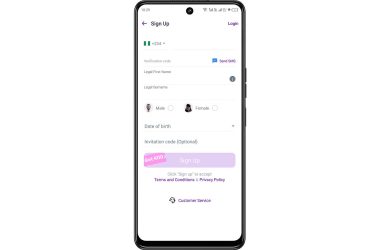Health insurance is a crucial aspect of any nation’s healthcare system, ensuring access to quality medical services for its citizens. Indeed, Health insurance startups in Africa play a significant role in addressing the continent’s healthcare challenges. Hence, this expert article delves into the state of health insurance companies in Africa. We examine the key issues they face and the potential solutions for a brighter healthcare future. The analysis draws from various reputable sources and statistics available up to September 2021.
Africa is a diverse continent with a rapidly growing population and an evolving healthcare landscape. Health insurance companies have emerged as essential players in improving access to healthcare services for millions of people across the region. Consequently, this article aims to shed light on the current state of health insurance companies in Africa, highlighting the challenges they encounter and possible strategies for overcoming these obstacles.
The State of Health Insurance Startups in Africa
Health Insurance Penetration Rates
As of 2021, health insurance penetration in Africa remains relatively low compared to other regions. According to the World Bank, only 6% of the population in sub-Saharan Africa has access to health insurance, leaving a substantial majority without proper coverage (World Bank Data, 2021). In other words, this lack of coverage poses significant challenges for individuals seeking medical attention and puts immense pressure on public healthcare systems.
The Dominance of Public Healthcare Systems
In truth, one of the primary challenges facing health insurance companies in Africa is the dominance of public healthcare systems. Moreover, many countries on the continent have underfunded and overcrowded public hospitals. This state of affairs makes private health insurance an attractive alternative for those who can afford it. However, a majority of the population, especially in rural areas, relies heavily on public healthcare services due to affordability concerns.
Limited Financial Inclusion
As we have shown, the lack of financial inclusion poses a considerable challenge for health insurance companies in Africa. A substantial portion of the population remains unbanked or underbanked, hindering their access to formal insurance schemes. As a result, this situation restricts the potential customer base for health insurance providers and limits the overall growth of the industry.
Key Issues Faced by Health Insurance Startups in Africa

Affordability and Accessibility
Undoubtedly, one of the most significant issues for health insurance companies in Africa is making their policies affordable and accessible to the masses. Moreover, the majority of the population lives on low incomes. This makes it challenging for them to afford comprehensive health insurance coverage. On the other hand, high premiums, copayments, and deductibles often deter potential customers from purchasing health insurance plans.
Lack of Awareness and Education
Yet again, limited awareness and understanding of health insurance products among the population remain significant barriers. Meanwhile, many people in Africa are not familiar with the benefits of health insurance or how it works, leading to scepticism and reluctance to invest in such policies. Effective education and awareness campaigns are essential for increasing health insurance uptake.
Fragmented Insurance Markets
The African continent is vast and diverse, consisting of multiple countries, each with its regulations and healthcare systems. This fragmentation poses challenges for health insurance companies trying to operate across borders. Navigating varying legal frameworks, cultural norms, and market dynamics requires significant effort and resources.
Insufficient Infrastructure and Technology
Health insurance companies in Africa face infrastructural challenges, particularly in rural and remote areas. Limited access to technology and internet connectivity hampers the digitization of insurance processes, leading to inefficiencies and delays in claim processing and policy management.
Potential Solutions and Prospects to Challenges Faced by Health Insurance Startups in Africa
Micro-insurance and Mobile Technology
Microinsurance, which offers low-cost insurance coverage to low-income individuals, has shown promise in increasing health insurance penetration in Africa. Partnering with mobile network operators and leveraging mobile technology can enable health insurance companies to reach previously underserved populations and offer affordable, customized policies.
Health Insurance Startups in Africa Should Engage in Public-Private Partnerships
Collaboration between health insurance companies and public healthcare systems can create synergies to address healthcare challenges effectively. Public-private partnerships can enhance the availability of health insurance to a broader population while improving the quality and efficiency of healthcare services.
Financial Inclusion Initiatives
Promoting financial inclusion is crucial for expanding the customer base of health insurance companies in Africa. Governments and stakeholders can work together to implement policies that facilitate access to banking services and promote financial literacy, making it easier for individuals to participate in formal insurance schemes.
Health Insurance Startups in Africa Should Leverage Data Analytics
Data analytics can be instrumental in enhancing the operations of health insurance companies in Africa. By leveraging data, insurers can develop more accurate risk models, personalize insurance offerings, and streamline claim processing, resulting in improved customer experiences and reduced costs.
Conclusion
Health insurance startups in Africa play a critical role in addressing the continent’s healthcare challenges. However, they face various issues, including low penetration rates, dominance of public healthcare, limited financial inclusion, and inadequate infrastructure. By adopting innovative approaches, collaborating with stakeholders, and leveraging technology, health insurance companies can overcome these challenges and contribute significantly to improving healthcare access and outcomes for the people of Africa. Policymakers, industry players, and civil society must work together to create an enabling environment that fosters the growth and sustainability of health insurance companies across the continent.








